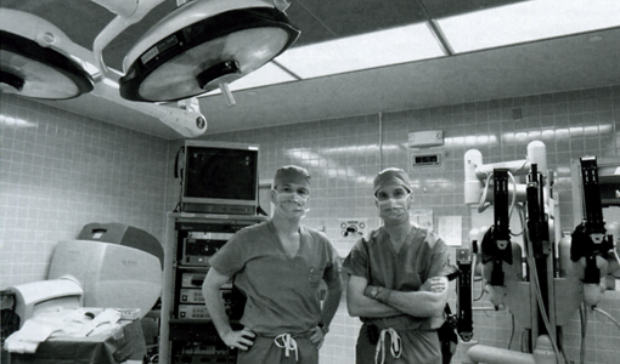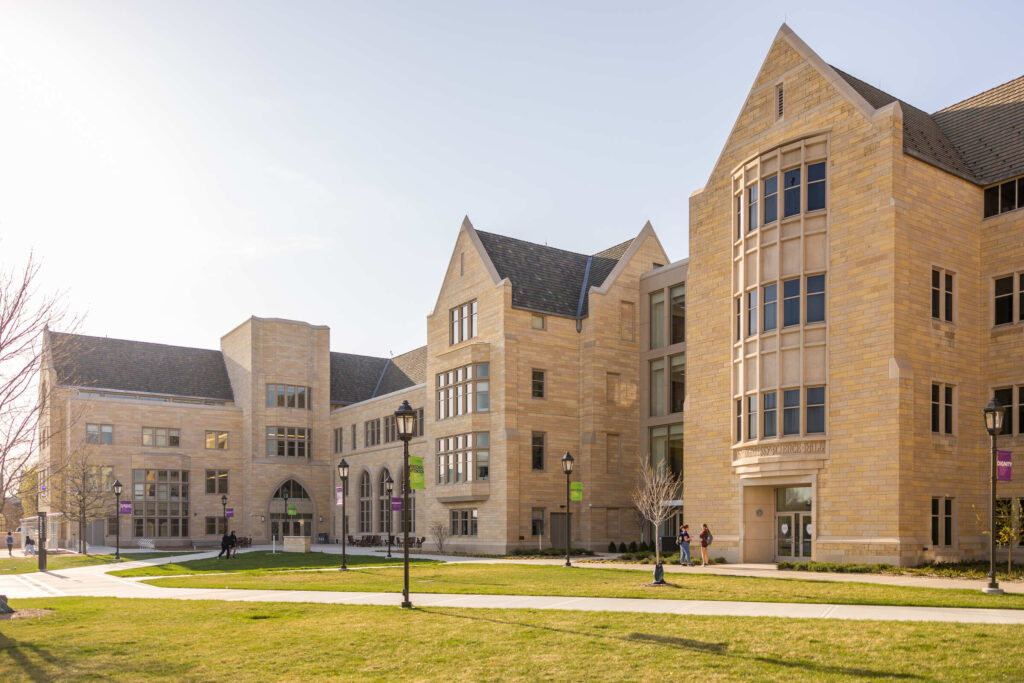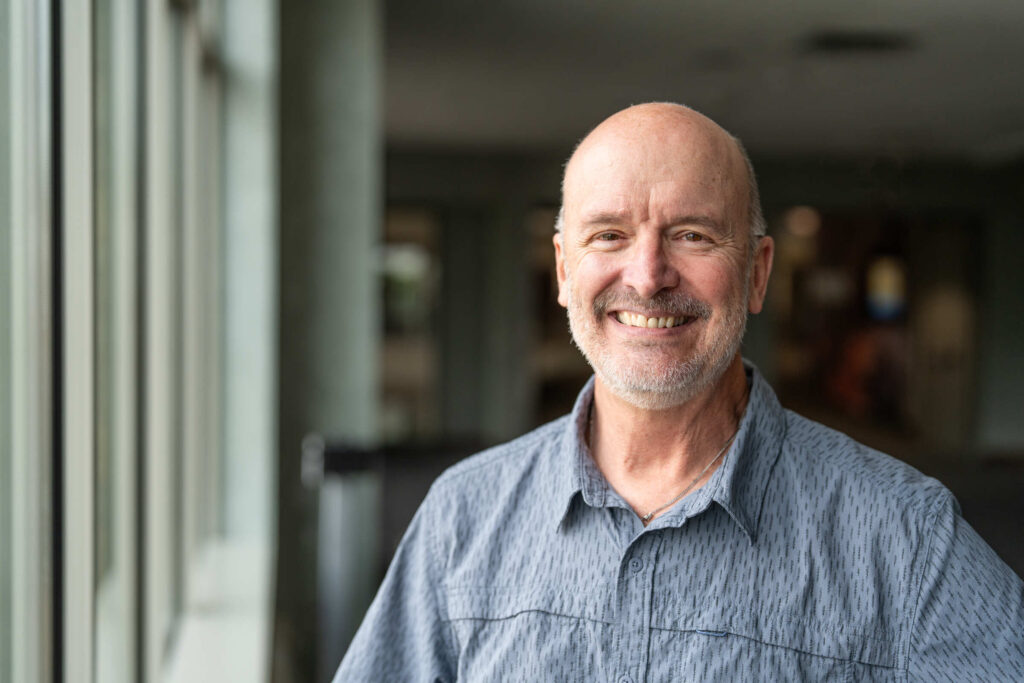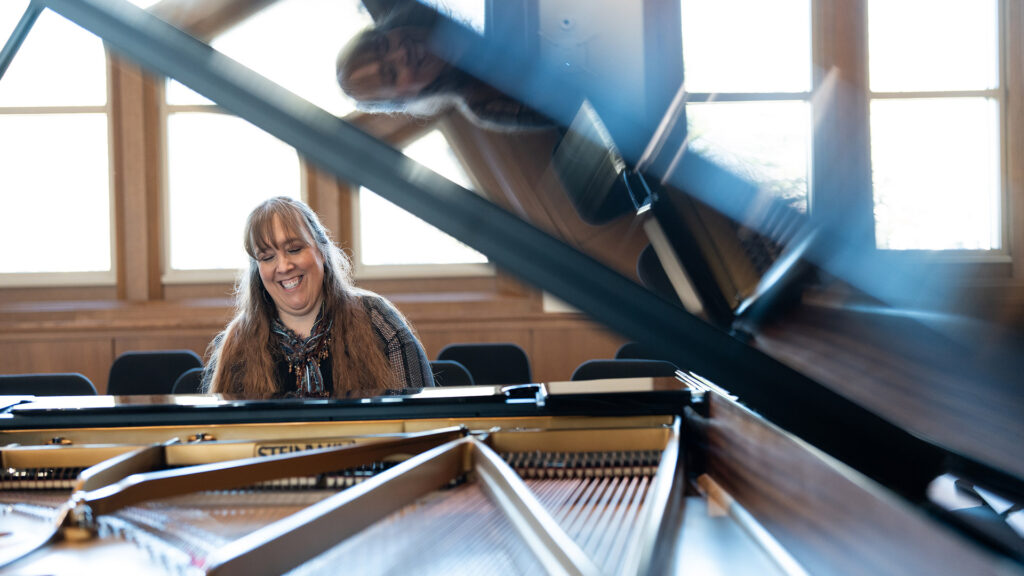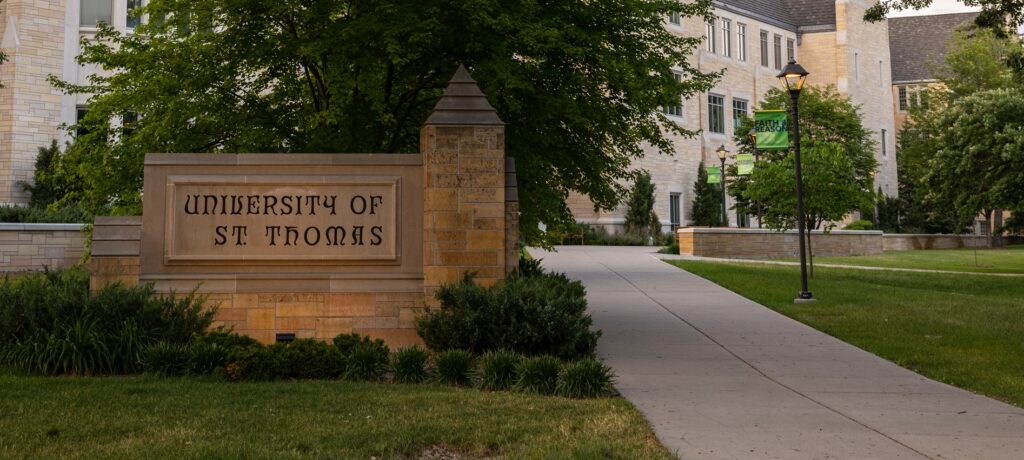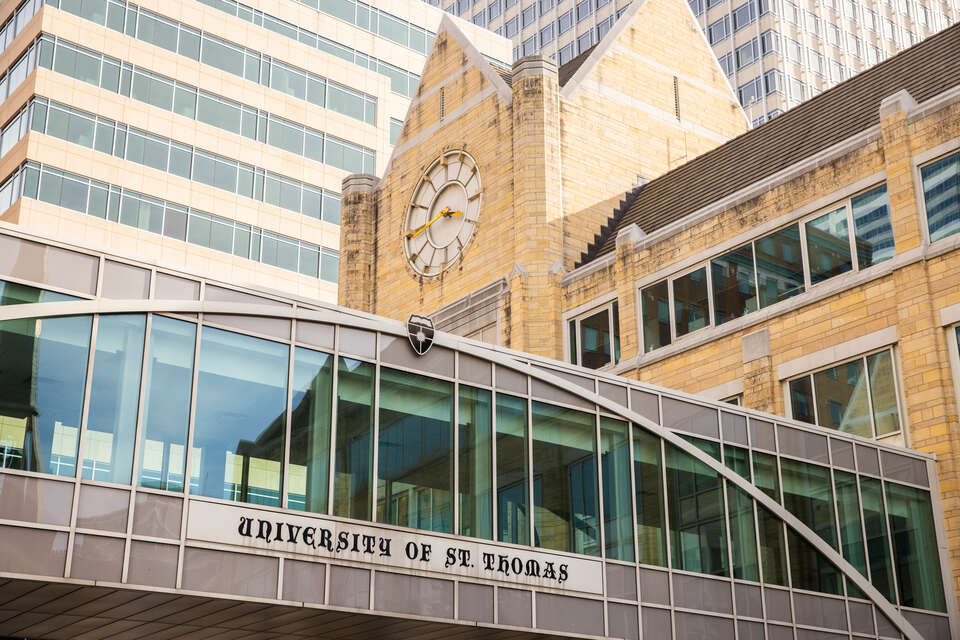Relaxed and outgoing, junior Ashley Burnham doesn’t hesitate to laugh and tell the photographer taking her picture that his camera strap may be in front of the lens. As she casually pulls her insulin pump out of her jeans pocket and points to the small infusion site just above her waist, she says, “Technology has made my life much easier and healthier. It has given me freedom.”
Diagnosed with juvenile (Type 1) diabetes when she was a freshman at Holy Angels High School in Richfield, Burnham had to test her blood and give herself shots about six times a day, going to the nurse’s office each time. An athlete who continued to play varsity tennis at Holy Angels and “basketball and football with the boys in my neighborhood,” Burnham had to schedule her life around her diabetes care. “After I got the insulin pump, which automatically adds the insulin that my pancreas stopped producing, it was a lot easier,” she said. “I fit in and felt like a normal student.”
It took her family a year to get their insurance company to pay for the $12,000 Ipod-sized pump, whose batteries last three months. “Well, first the company didn’t want to cover it because I came in with a pre-existing condition,” Burnham explained. “Of course, if I didn’t have diabetes I wouldn’t have needed a pump.”
Medtronic Inc. of the Twin Cities makes the insulin pump and has developed a continuous glucose monitor that tests blood every five minutes and beeps to warn its wearer if blood sugar is too high or too low. “Now I test my blood sugar four times a day and only give myself a shot every three days when I change the infusion site location in my stomach,” she said. “I’d like to have that monitor but don’t know if insurance will pay for it.”
Medtronic is important to Burnham, now 21, because that’s where she hopes to work in marketing or human resources after graduation. A business communications major, she would like to specialize in writing about the pump and other technological devices that make serious illness easier to handle.
Handling diabetes comes with amazing skill and energy in her case. Working 40 hours a week at the university’s coffee and lunch cart, Beakers, and carrying a full load of classes, Burnham finds her 3.0 GPA a little disappointing. “I took a half-year of college with Advanced Placement courses while still in high school and had a 32 out of a 36 on the ACT. I got a lot of scholarship money from St. Thomas, which is why I chose to come here, but I don’t have the time to study as much as I want because I have to get at least six hours of sleep a night.” She works so hard for many reasons: her father died last year, and her mother helps pay her tuition but she pays her own living expenses.
Burnham will work full time after graduation and go to nursing school part time to become a diabetes nurse specializing in pump therapy. Burnham also works at the summer Camp Needlepoint in Hudson, Wis., for children with diabetes.
“My diagnosis was a big shock,” she recalled. “No one in our family had diabetes. But many of these kids have had diabetes since age 1 or 2 and know nothing else. Children can use the pump after they turn 10, so I help them manage that technology to gain more freedom.
“Juvenile diabetes is a scary disease. If not managed well, you can lose a kidney or limbs or die. I’ve been in the hospital with the flu because it’s harder to fight off infections. You have to be on top of it every second.
“Building that insulin pump in the 1980s changed the diabetes field forever,” she said. “I look back and can’t believe I lived the way I did when I was 15. Technology improves almost daily. Researchers are producing insulin inhalers and pills for those with Type 2 diabetes, where the pancreas still produces some insulin. The University of Minnesota is testing pancreas transplants and stem cell research looks promising. As a diabetes spokesperson Mary Tyler Moore, says, ‘We hope for a cure within our lifetime.’ ”
